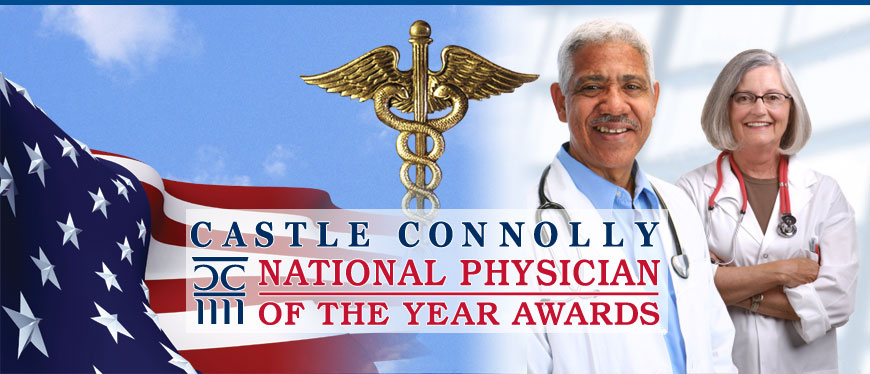December 21st, 2010 by BarbaraFicarraRN in Better Health Network, Health Tips, Research
No Comments »

 Guest post submitted by MD Anderson Cancer Center*
Guest post submitted by MD Anderson Cancer Center*
When you raise your glass at this year’s holiday toast, choose your beverage wisely. Research shows that drinking even a small amount of alcohol increases your chances of developing cancer, including oral cancer, breast cancer and liver cancer.
Yet, other research shows that drinking small amounts of alcohol may protect the body against coronary heart disease and type 2 diabetes. Some evidence even suggests that red wine may help prevent cancer.
Researchers are still trying to learn more about how alcohol links to cancer. But, convincing evidence does support the fact that heavy drinking damages cells and contributes to cancer development.
Confused? Use our beverage guide to choose a drink with the lowest health risk, and learn your recommended drink limit and what alcoholic drinks to avoid. Read more »
*This blog post was originally published at Health in 30*
October 19th, 2010 by BarbaraFicarraRN in Better Health Network, Health Tips, News, Research
No Comments »

 Guest post submitted by MD Anderson Cancer Center
Guest post submitted by MD Anderson Cancer Center
Most of us can’t keep up with all the new ways to avoid cancer. Thanks to the Internet, we now have an unlimited supply of cancer knowledge at our fingertips. But, how can we filter out the good, the bad and the questionable?
Below are steps to help you tease out the facts when reading that next big news story on preventing cancer.
Says who?
Don’t just take the writer’s word for it. Dig a little deeper to find out the source behind the hype. The American Cancer Society says you should ask yourself these questions when reading an article:
- Was this a press release from a company announcing a new breakthrough in cancer prevention?
- Was it a report from a clinical study that was given at a scientific conference?
- Was it a report from a study that was published in a respected medical journal?
- Where was the study done? What do you know about the research centers that conducted and sponsored the study?
Knowing the answers to these questions can help you decide on where you need to go to seek more details about the study findings. Visit the source of the information to learn more about how this new substance or method was tested. Read more »
*This blog post was originally published at Health in 30*
September 24th, 2010 by BarbaraFicarraRN in Better Health Network, Health Tips, Quackery Exposed, Research
No Comments »

(Guest post submitted by MD Anderson Cancer Center)
Aisles in grocery stores and pharmacies are stacked with vitamins, minerals, herbs or other plants that you take in pill, capsule, tablet or liquid form. And, many of us buy these supplements and take them regularly, hoping to lower our chances of getting cancer and other diseases.
But do supplements really work wonders? Should you take them to help prevent cancer? Our experts say beware.
“Don’t be fooled by the label on the bottle,” says Sally Scroggs, health education manager at MD Anderson’s Cancer Prevention Center. “Researchers are still unsure about whether or not supplements actually prevent cancer.” Some studies have suggested that supplements may actually increase cancer risk by tilting the balance of nutrients in the body. Read more »
*This blog post was originally published at Health in 30*
July 26th, 2010 by David Kroll, Ph.D. in Better Health Network, Health Policy, News, Opinion, Research
No Comments »

This is not good. Not good at all.
Recently Paul Goldberg of The Cancer Letter reported on an investigation into Duke cancer researcher Anil Potti, M.D., and claims made that he was a Rhodes Scholar in Australia. The misrepresentation was made on grant applications to National Institutes of Health (NIH) and the American Cancer Society (ACS).
The Cancer Letter, a $375 per year go-to newsletter on cancer research, funding, and drug development, has made this issue free at this PDF link.
News & Observer higher education reporter Eric Ferreri has a nice overview of the situation. Potti has been placed on administrative leave by Duke, and the ACS has suspended payments on his grant and initiated their own investigation. Read more »
*This blog post was originally published at Terra Sigillata*
March 24th, 2009 by Dr. Val Jones in News
No Comments »
 I attended the fourth annual Castle Connolly National Physician of the Year Awards last night in New York City. It was truly moving to hear the incredible stories of triumph of each honoree – from military surgery (Dr. Judd Moul), to curing head and neck cancer (Dr. Carol Bradford), to expanding palliative care services for people not expecting a cure (Dr. Diane Meier) – each awardee embodied the very best character and principles one can hope for in a physician.
I attended the fourth annual Castle Connolly National Physician of the Year Awards last night in New York City. It was truly moving to hear the incredible stories of triumph of each honoree – from military surgery (Dr. Judd Moul), to curing head and neck cancer (Dr. Carol Bradford), to expanding palliative care services for people not expecting a cure (Dr. Diane Meier) – each awardee embodied the very best character and principles one can hope for in a physician.
But perhaps most moving of all was the story of lifetime achievement award-winner, Dr. Emil Freireich. Dr. Freireich was born to Hungarian immigrants, his father died when Emil was 2 years old, his mother worked in a sewing factory to provide for his needs growing up. Through sheer grit and determination, Emil managed to get himself to college and then medical school. He began his career in 1955 at the National Cancer Institute (and has been working at MD Anderson Cancer Center since 1965) where he was provided a challenge: to cure childhood leukemia. Here is what Dr. Freireich had to say about how things have advanced in the field of leukemia in his lifetime:
In 1955 when I began my career at the National Cancer Institute, children diagnosed with leukemia usually lived for about 8 weeks. They had about a 1% chance of surviving a year – and they had a median age of 5 years old at diagnosis.
The worst thing about leukemia was not the short life expectancy, but the way the children died. You see, leukemia destroys blood platelets (the part of the blood that allows it to clot), and produces its own anti-coagulant. So every child with leukemia died of massive hemorrhaging. As a doctor in 1955, when I entered the leukemia ward, all I saw was blood. The children were bleeding in their urine, stool, lungs, and even from their eyes. They would cough to breathe and spew blood as high as the ceilings. The wards were red with death.
But now, thanks to years of research and the development of combination chemotherapy, leukemia is not a death sentence. In most cases it can be cured, and in all cases we can stop the bleeding.
The most rewarding part of my career has been treating young children with leukemia, and watching these same children grow up to become physicians who treat other children with leukemia. I have passed the torch on to them, and I believe that they will one day find the cure for other cancers too. I believe we will get there soon.
I had the chance to interview Dr. Freireich for this blog last year. You may read more here. Congratulations to all the awardees of the event – carry the torch high for us docs, we need more stories of hope like yours… and thanks to Castle Connolly for such an inspirational evening.
 Guest post submitted by MD Anderson Cancer Center*
Guest post submitted by MD Anderson Cancer Center*


 Guest post submitted by MD Anderson Cancer Center
Guest post submitted by MD Anderson Cancer Center











